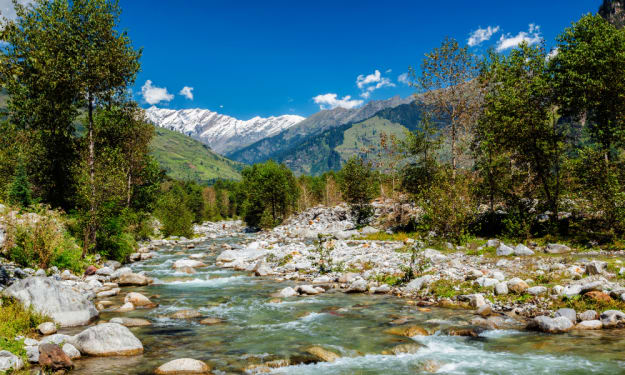Empowering Citizens:
Engaging in the Conservation of the Environment

Introduction:
Environmental conservation is a shared responsibility that requires the active participation of all citizens. Regardless of age, background, or profession, every individual has a role to play in protecting and preserving our planet. By adopting environmentally friendly practices and making conscious choices in our daily lives, we can collectively contribute to the conservation of the environment. In this article, we will explore practical ways in which citizens can actively engage in environmental conservation, fostering a sustainable future for generations to come.
Raise Awareness:
Raising awareness is a crucial step in engaging citizens in environmental conservation. By staying informed about environmental issues and sharing knowledge with others, we can inspire collective action. Engage in conversations with family, friends, and colleagues about the importance of protecting the environment. Utilize social media platforms to spread information, share articles, and raise awareness about environmental challenges and solutions. Additionally, organizing and participating in community events, workshops, or public talks can educate and empower individuals to take positive environmental actions.
Adopt Sustainable Habits:
Individuals can make a significant impact on the environment by adopting sustainable habits in their daily lives. Start by conserving energy and water by turning off lights and appliances when not in use and minimizing water waste. Reduce, reuse, and recycle to minimize waste generation and promote a circular economy. Choose eco-friendly products and packaging options, and opt for renewable energy sources whenever possible. Embrace sustainable transportation options such as public transit, biking, or carpooling to reduce carbon emissions. By making small changes in our lifestyle choices, we can collectively contribute to conserving natural resources and minimizing environmental degradation.
Support Environmental Initiatives:
Citizens can actively participate in environmental conservation by supporting and engaging with various initiatives. Volunteer your time and skills with local environmental organizations, participating in activities such as tree planting, beach clean-ups, or habitat restoration projects. Support conservation initiatives financially by donating to environmental organizations or crowdfunding campaigns. Join local or online advocacy groups to amplify your voice and advocate for stronger environmental policies and regulations. By actively supporting and participating in these initiatives, citizens can drive positive change at the grassroots level and contribute to larger conservation efforts.
Promote Sustainable Agriculture and Consumption:
Engaging in sustainable agricultural practices and promoting responsible consumption is another avenue for citizens to contribute to environmental conservation. Support local farmers and purchase organic, locally grown produce to reduce the carbon footprint associated with transportation and support sustainable farming practices. Grow your own food by starting a vegetable garden or participating in community gardening projects. Reduce food waste by planning meals, composting organic waste, and supporting food redistribution initiatives. Opt for sustainable seafood options and reduce the consumption of products derived from endangered species. By making informed choices about the food we consume and supporting sustainable agricultural practices, citizens can contribute to conserving biodiversity, reducing land degradation, and minimizing the use of harmful chemicals.
Engage in Policy Advocacy:
Citizens have the power to influence environmental policies and advocate for change. Stay informed about environmental policies and regulations at the local, national, and international levels. Engage with elected representatives by writing letters, making phone calls, or participating in public hearings to express your concerns and support for environmentally friendly policies. Join or support organizations that actively work on environmental advocacy to increase their collective impact. By actively engaging in policy advocacy, citizens can help shape legislation that promotes sustainable practices, protects natural resources, and addresses environmental challenges effectively.
Climate change has wide-ranging effects on the environment, leading to significant disruptions in ecosystems and natural processes. Here are some of the key impacts of climate change on the environment:
Rising temperatures: Global warming is causing temperatures to rise across the planet. This affects various aspects of the environment, including increased heat stress on organisms, altered precipitation patterns, and changes in weather extremes such as heat waves and droughts.
Melting ice and rising sea levels: Climate change is causing the melting of glaciers and ice caps, leading to rising sea levels. This threatens low-lying coastal areas and islands, increases the risk of coastal erosion and flooding, and affects coastal ecosystems and habitats.
Changes in precipitation patterns: Climate change influences the distribution and intensity of rainfall. Some regions may experience increased rainfall and flooding, while others may face more frequent and severe droughts. These changes can impact water availability, agriculture, and the overall balance of ecosystems.
Ocean acidification: Increased carbon dioxide (CO2) emissions from human activities are being absorbed by the oceans, causing them to become more acidic. Ocean acidification can harm marine life, particularly organisms that rely on calcium carbonate to build shells and skeletons, such as coral reefs, shellfish, and some plankton species.
Biodiversity loss: Climate change poses a significant threat to biodiversity. It can disrupt ecosystems and alter the habitats of numerous plant and animal species. Many species may struggle to adapt or migrate fast enough to new conditions, leading to population declines and, in some cases, extinction. This loss of biodiversity can have far-reaching consequences for ecosystem functioning and services.
Altered ecosystems: Changes in temperature, precipitation, and other climate factors can disrupt ecosystems and alter the distribution of plant and animal species. This can lead to shifts in the ranges of certain species, changes in plant communities, and disruptions in ecological interactions such as pollination and predator-prey relationships.
Increased risk of natural disasters: Climate change can amplify the intensity and frequency of extreme weather events, including hurricanes, cyclones, floods, and wildfires. These events can cause significant damage to ecosystems, infrastructure, and human lives.
Impact on agriculture and food security: Changes in temperature, rainfall patterns, and extreme weather events can disrupt agricultural systems, affecting crop yields and livestock productivity. This can have implications for food security, both globally and regionally.
Water resources and availability: Climate change can impact the availability and quality of freshwater resources. Changes in precipitation patterns, melting glaciers, and altered river flows can affect water availability for drinking, agriculture, and other human needs.
It's important to note that the effects of climate change are complex and can vary across different regions and ecosystems. The severity of these impacts depends on the extent of global warming and the effectiveness of mitigation and adaptation measures implemented to address climate change.
Conclusion:
Environmental conservation requires the participation of all citizens, and each individual has a unique role to play. By raising awareness, adopting sustainable habits, supporting environmental initiatives, promoting sustainable agriculture and consumption, and engaging in policy advocacy, citizens can actively contribute to the preservation and protection of our environment. Remember, even small actions can make a significant difference when embraced collectively. Let us empower ourselves and inspire others to be responsible stewards of the environment, ensuring a sustainable and thriving planet for present and future generations.
About the Creator
ADEBAYO ADELEYE J
I have a strong passion for writing and Over the past 3 years, I have honed my writing abilities through various projects, including relevant writing experiences, such as freelance work, published articles, or blog contributions.
Enjoyed the story? Support the Creator.
Subscribe for free to receive all their stories in your feed. You could also pledge your support or give them a one-off tip, letting them know you appreciate their work.





Comments
There are no comments for this story
Be the first to respond and start the conversation.